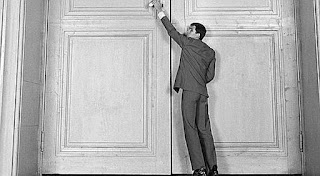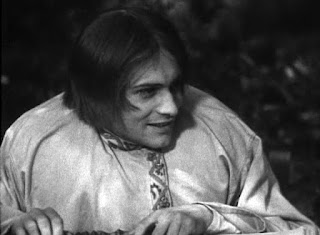One, No One, and a Hundred Thousand
Luigi Pirandello
1926
Around 175 pages
This is one of those novels I had to put down frequently to reflect on the crazy, brilliant ideas Luigi Pirandello presented. What a great find, I would have never checked this out without the List.
Vitangelo Moscarda's wife tells him he has a big nose, which sends him into an existential crisis. Girl, I would have the exact same reaction. He realizes that everybody he has ever met has constructed a different persona of him, none of which correspond with the real "Vitangelo." Which is crazy and true.
We are a new person to everybody we meet. Some people know me as daughter, girlfriend, that bitch who doesn't "get" Joyce. Am I all of these things, or none of these things? And do we have the authority to proclaim we know our true selves, or does that right belong to somebody else?
Vitangelo is chillingly sane, and this made for a fascinating novel.
RATING: ****-
Interesting Facts:
Pirandello began writing this is 1909. That's so inspirational to me. Some projects take a long time to gestate. Don't give up!
UP NEXT: The Plumed Serpent by D.H. Lawrence.






































